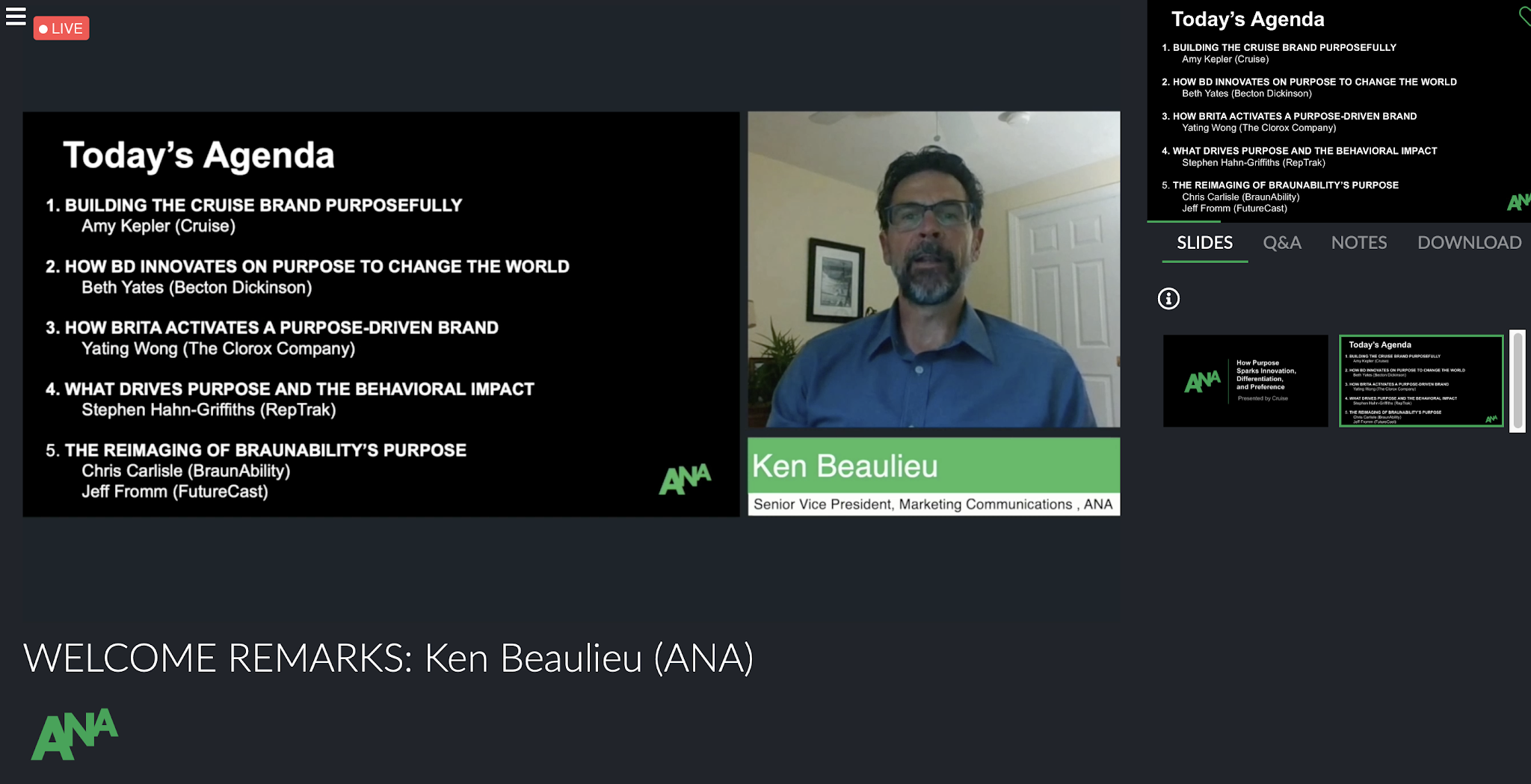The ARF: Insights Studio Series - Brand Purpose: An Effective Advertising Response In A Crisis | David Puccio
Presented By:
Sarah Capers - Head Of Brand Kantar https://www.linkedin.com/in/sarahcapers/
J Walker Smith - Chief Knowledge Officer Kantar https://www.linkedin.com/in/j-walker-smith-7170518/
Ann Green SVP - Client Partner Kantar https://www.linkedin.com/in/ann-green-54b967/
Paul Donato - Chief Research Officer ARF https://www.linkedin.com/in/paul-donato-19a8364/
This edition of the ARF: Insight Studio series focused on the uncertainty that brands are facing during COVID-19. By looking back at past crises and brand responses, members of Kantar were able to put together plans and examples of how to effectively respond to a crisis. Paul Donato, Chief Research Officer of The ARF, opened the talk by saying that
"Purpose in advertising has risen faster than the virus itself."
"As much as people are concerned about their health people are concerned about the day to day” J. Walker Smith.
J Walker Smith explained that we can look into the past to see what is coming in terms of advertising during a pandemic or large scale crisis. Kantar research has found that “disruptions” or other large scale crises pave the way for trends that were already beginning to take hold.
“What disruptions do is clear the way for trends to become mainstream and pave the way for new trends.”
The trend in this case is purpose focused marketing. Consumers are looking for brands to not just benefit themselves but to also do work to help society as a whole.
"Consumers trust brands less but want them to do more."
Smith pointed out that although consumers say they don’t trust brands very much, they are more trusted than the government institutions.
Some things that consumers expect from businesses are to, offer reassurance, treat their employees well, and to be helpful in everyday life. Brands that have stepped up to the plate in the eyes of consumers are Disney, Synchrony, Armani and Apple. An example is luxury manufacturer LVMH, who has converted their perfume making facilities to making hand sanitizer.
Sarah Capers goes on to explain that a purpose based ad campaign must make sense and have a tight link to the brand. Purposed based campaigns from brands like Nike are controversial but ultimately successful because they are in line with the bold image that the brand has linked to itself. Also for a Brand like Patagnonia, who is dedicated environmental protection, campaigns focusing on such work for the brand.
“Authenticity is important and the apple shouldn’t fall from the tree, centering people and not your brand, giving people something to do."
Sarah goes on to explain that if you feel that your purpose based campaign is too “risky” it is because it is inauthentic to your brand. Although the public is looking for brands to take a social stance they are easily turned off when the message is inauthentic or not followed up by any real action.
The framework developed by Kantar and ARF also found that historically brands who advertise during a crisis tend to come out of the crisis stronger. Staying present in the mind of the consumer during a time of crisis and putting out proposed based campaigns that stay true to the core of the business will help brands effectively survive the crisis.






